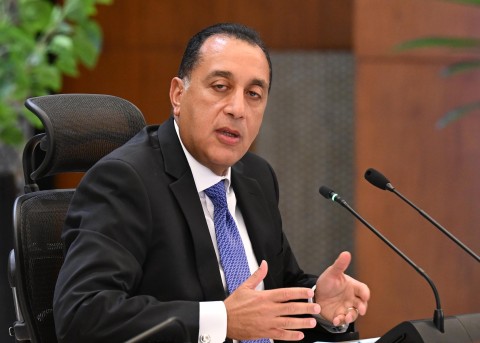The Egyptian Prime Minister, Moustafa Madbouly, has received two reports from the Information and Decision Support Center (IDCS) presenting the repercussions of the coronavirus pandemic on the international as well as the local energy markets, according to a press release.
Osama Al Gohary, the Prime Minister Assistant and IDSC’s Chairman, showcased the first report, entitled “The Repercussions of Covid-19 on the Global Energy Market,” which examines the effects of the emerging coronavirus, in light of ongoing global developments, and most notably the state of the oil sector and its crises. He elaborated that the report discusses 18 topics reflecting the most important analysis from several international sources.
The report featured a research paper by the International Energy Agency (IEA) on the expectations of the energy sector as a result of Covid-19 crisis, which referred to the consequences of the pandemic on energy. The Conversation newspaper’s predictions for oil prices through the upcoming years were also included, indicating that oil prices will not regain their pre Covid-19 level and that fuel demand will decrease.
Additionally, a report issued by Oil Price website stated that the cut of liquefied natural gas (LNG) price is not a solution . The Financial Times warned that natural gas market may be in a risk of adopting the same track of the negative prices in oil market.
Regarding recovery, Al Gohary said that IDSC presented an article issued by Energy Gate elaborating the necessity for Middle Eastern companies to adopt new efficient digital operations’ models. Also, Energy Voice newspaper posted its expectations about zero carbon dioxide emissions.
The second report addressed the repercussions of the international oil crisis on the Egyptian energy market. The Prime Minister Assistant and Chairman of IDSC pointed out that low oil prices affects the energy sector in Egypt on two levels: the first level is positive as Egypt is a consuming and importing oil country, and the second side is negative because of the financial pressure imposed on international oil companies (IOCs) that may cause halting their operations in Egypt.
The report predicted that low oil prices will positively affect the energy bills in Egypt by cutting costs of petroleum imports during fiscal year (FY) 2019/2020 to the half of $12.1 billion which was the cost of petroleum imports during FY 2018/2019.












